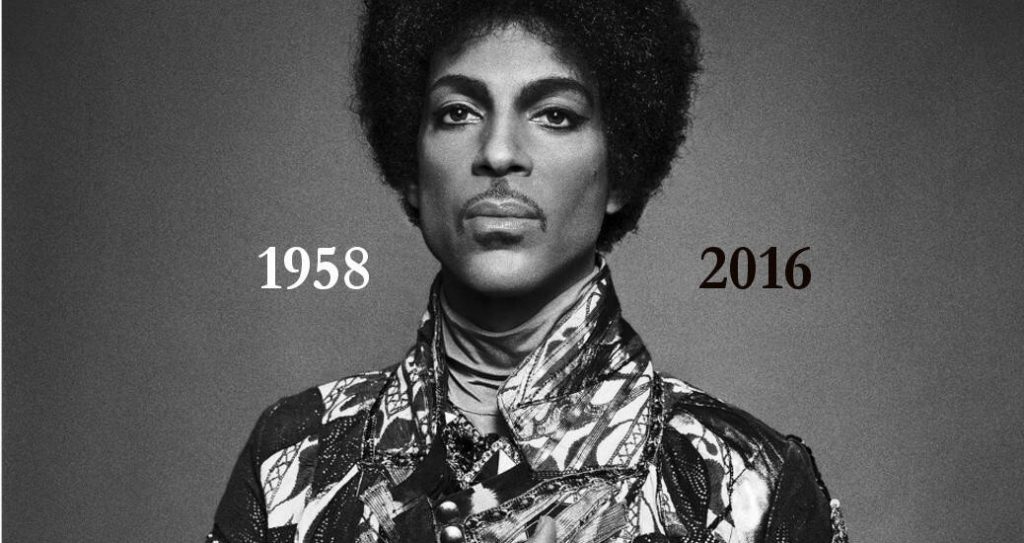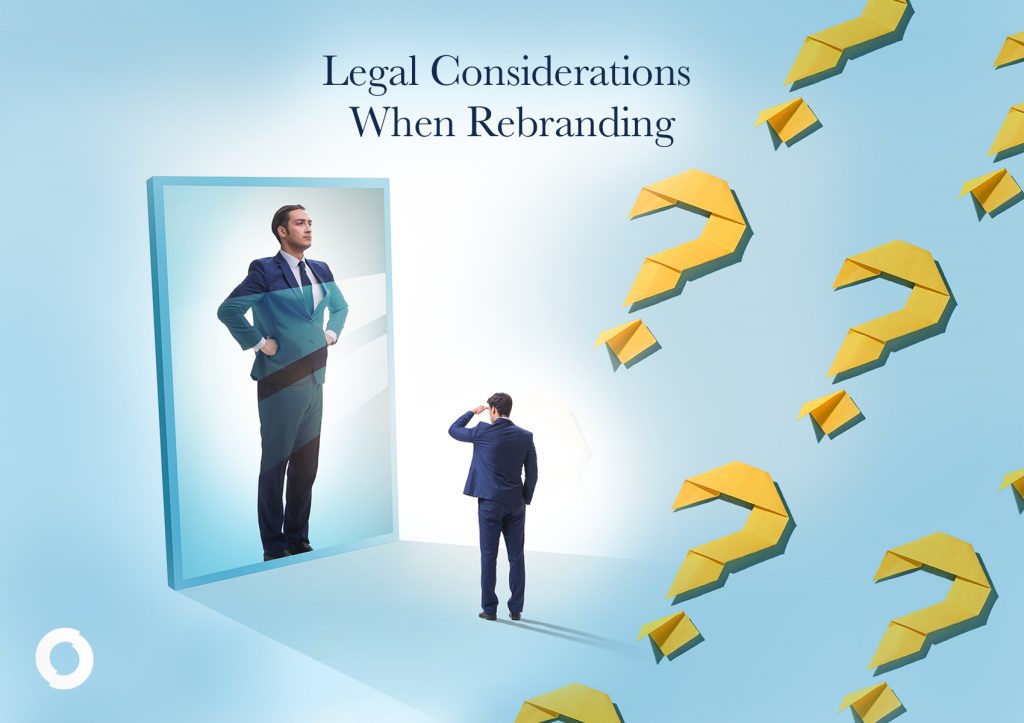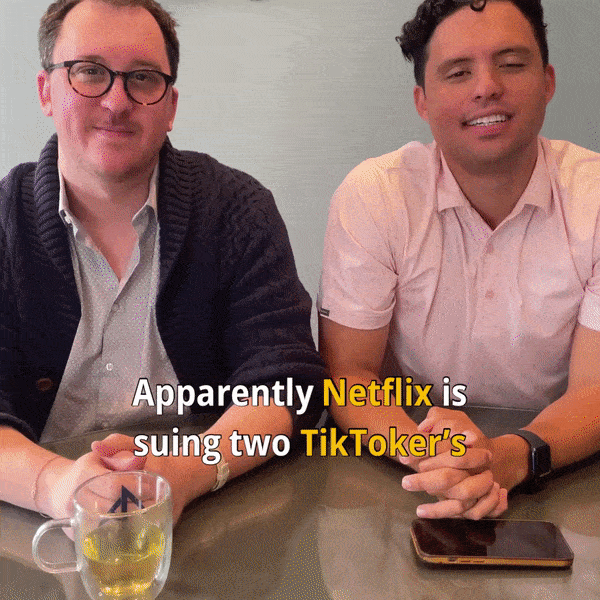If you look at this week’s Billboard Top 200 Albums chart, you’ll see that the no. 1, 2, and 6 spots all belong to the recently departed Prince, with five more of his albums of his scattered through the rest of the charts. A testament to his staying power and genius, of course, but probably just an anomaly related to the outpouring of nostalgia, right?
Maybe, maybe not. Take another look at the chart, and you’ll see that America’s top-selling albums for the past week also include:
- 32: The Notorious BIG – “Life After Death”
- 50: Bob Marley – “Legend”
- 90: Queen – “Greatest Hits I, II, and III”
- 103: The Eagles – “Greatest Hits”
- 105: Tupac – “Greatest Hits”
- 106: The Beatles – “1”
- 116: David Bowie – “The Best of Bowie”
- 139: Nirvana – “Nevermind”
- 152: Michael Jackson – “Thriller”
- 168: Sublime – “Sublime”
- 182: Merle Haggard – “16 Greatest Hits”
- 188, 190, 191: Michael Jackson: “Essential” “Bad” “Off the Wall”
Putting this all together, 11% of the top selling albums in the country are all by artists who have died (or bands with frontmen who died), some of whom seem to be more popular than ever.
This is a strong reminder that not only can an artist’s art outlive them, but the big business of profiting from that IP (Intellectual Property) can survive for many years past the creator’s lifetime as well. While this is true across the IP spectrum – whether in creative fields like books, films, and art, or in more business-focused worlds such as technology or medicine – we’ll take a look at the world of music in exploring the potential business and legal issues that might come up in terms of IP following an artist’s death.
It’s Not Just About the Money
Figuring out who cashes a deceased artist’s royalty checks is only one part of the issue of business succession. It’s also about deciding how an artist’s legacy continues after death. Will the people making the business decisions regarding how an artist’s work and likeness are used make the same decisions as the artist would have in life?
Prince was notoriously protective of his art, and a champion of worker’s rights, as demonstrated by the fact he was a member of both local and national unions for 40 years. As catalogued by the Wall Street Journal, Prince’s representatives vigorously pursued unauthorized use of his IP, including:
- Suing the makers of a home video posted on YouTube using his music
- Suing a bike messenger who made a guitar shaped like his 1990s unpronounceable symbol
- Suing fans for $1 million apiece who posted concert clips online
Prince also refused to release his music to streaming sites and famously changed his name in the 1990s to a symbol to get out of contractual obligations with his record label. Clearly, the artist was serious about controlling his IP.
The Absence of a Will Clouds the Future of Prince’s IP
This tight grip on his IP makes the news that he apparently died without a will especially shocking. Instead of Prince’s assets – which are roughly valued at between $150 and $300 million – being divied up to be managed by his hand-chosen heirs, a Minnesota probate court will instead apply that state’s rules of intestacy (the laws that determine who gets a deceased’s assets and liabilities in the absence of valid will). Presumably, this means his surviving family members (one sister, five half-siblings, and others) will be in a position to decide what happens to his IP in the coming decades.
That’s not to mention the fact that the estate could be subject to a combined 50% federal and state estate tax penalty (probably safe to assume anyone without a will was also not setting up complicated trusts to avoid the estate tax). And while there’s enough in the Prince affair to keep an estate planning attorney talking for days, we’re going to focus on the matter of Prince’s IP and the issues that other IP owners should consider.
The Potential Damage of a Rocky Business Succession
Prince was often compared to Jimi Hendrix, with his virtuoso guitar skills and flamboyant style, and the man behind “Purple Haze” also died without a plan for his intellectual property, with consequences that do not bode well for Prince. Hendrix’s estate was the subject of extended litigation between an attorney and Hendrix’s father, who had a notoriously rocky relationship with his son and even discouraged him from music. The Hendrix estate continued to be the subject of extended litigation and infighting into the 2000s.
While Hendrix continues to be recognized as one of the all-time greats, from an aesthetic point of view, critics generally agree that his estate has been mishandled with regard to the use of his music. Hendrix put out three classic albums in life, and yet his estate has released an additional 12 albums after his death, many of which were considered sub-par, tinkered with, and the result of “money grubbing.”
Too Many Cooks in the IP Kitchen
Sometimes, an artist’s IP will descend to multiple parties who find it difficult to agree on business decisions, or who may not have the leverage to prevent others from making decisions outside of their scope.
When Bob Marley died intestate at age 36 in 1980, his music rights became split among his wife and 11 children. His wife – who owned only 10% of his estate – entered into shady dealings with unscrupulous businessmen, and the estate devolved into chaos. Meanwhile, numerous parties attempted to capitalize on his name through recordings and even Jamaican tours named after the dead singer.
Litigation ensued for decades over ownership of the estate, into the 2010’s. Ironically, Marley, who had been only moderately popular in the US before his death, went on to become a household name and dorm-room staple, selling albums in the seven figures (see above that his greatest hits album is still on the charts).
Similarly, matters can get complicated when an individual shares in the ownership of IP, and that person’s successor finds herself business partners with people with whom she has difficulty seeing eye-to-eye. When Kurt Cobain died in 1994 at the age of 27, his estate went primarily to his wife Courntey Love. The band’s most popular song, “Smells Like Teen Spirit” had a shared songwriting credit between Cobain and bandmates Krist Novoselic and Dave Grohl. Disputes between Love and the Nirvana bandmates ensued for years regarding the usage of Nirvana songs. In 2011, the Novolesic and Grohl agreed to license “Smells Like Teen Spirit” to “The Muppets” film, over Love’s wishes. Love argued that she herself controlled the right to the song and said the band members “raped” the legacy of her husband.
Deceased Stars and Their Right of Publicity
While music royalties are what immediately comes to mind when we think of deceased musicians, the income stream connected with the use of their likeness can be quite significant as well, and raise all kinds of questions as to the proper use of a person’s likeness when they are no longer around to have any say in the matter.
Estates can of course enter into deals allowing for the use of the person’s, such as in the case of a Kurt Cobain T-shirt, a Miles Davis biopic movie, or a Bob Marley poster. Things get a little stranger when the deceased star is reanimated, such as was the case with a 2012 Coachella performance involving a dancing hologram of Tupac Shakur, or a 1992 TV ad featuring Elton John performing with a long-dead Louis Armstrong to sell Diet Coke.
But what if an estate does not enter into an agreement for a dead artist’s likeness? Could Diet Coke have used Louis Armstrong’s image without paying a dime, and can companies now begin using Prince’s iconic image to sell soda, video games, umbrellas, and all things purple?
Surprisingly, the answer actually changes from state to state, and where a person dies can have an effect on whether their estate can control how their likeness is used.
Where You Die Can Control Whether Your Likeness is in the Public Domain
I recently saw an enormous rug for sale in LA’s Fashion District featuring a tattooed Marilyn Monroe wearing a leather bra, holding a smoking gun, sitting on a pile of $100 bills (I resisted the urge to buy it) with the message, “Never Stop Dreaming.” Straight up copyright infringement? Not at all, it turns out. Instead, this memorable rug is the direct result of a Ninth Circuit decision just fours years ago.
In that case, the court determined, that, because Monroe died in New York, she could not take advantage of California’s generous laws protecting a person’s likeness after the death. Instead her estate had to look to New York law, which has no law protecting a person’s likeness after death. Which means you too can go create a Marilyn Monroe rug with your own inspirational image (or of anyone else who ever died in New York for that matter). Interestingly, the Ninth Circuit decision ended with a quote from Monroe herself, “I knew I belonged to the Public and to the world, not because I was talented or even beautiful but because I had never belonged to anything or anyone else.”
California is one of only a handful of states that in fact protect a person’s right to publicity after they die, and its law protects a person’s name, likeness, voice, signature, and photograph for a full 70 years after the person’s death.
Minnesota, the location of Prince’s death, does not have a statutory right of publicity for dead persons, and no Minnesota court has suggested there is such a right to publicity. That of course does not mean that a Minnesota court could find that such a right exists in a future case involving use of Prince’s likeness in a product. It does seem to suggest, however, that we could be seeing unauthorized yet legal uses of the likeness of Prince by anyone who wants to use his face to sell products. Yes, the same Prince whose lawyers removed his face from YouTube as much as possible and sued uploaders for millions.
Prepare for the Fact that Your IP is Your Legacy
As demonstrated by the above, preparing for how your property is treated after your death is not simply a matter of drawing up a will and picking your beneficiaries. If IP is part of your estate, it requires an understanding of what property rights exist in your jurisdiction, preparing for issues of shared ownership, and understanding what your successors can and cannot do with your property. As the months and years go by, we’ll likely see this play out in the legal aftermath of Prince’s passing.



![How Independent Artists Reacted to Fashion Mogul Zara’s Alleged Infringement [e277]](https://www.pashalaw.com/wp-content/uploads/2016/08/How-Independent-Artists-Reacted-to-Fashion-Mogul-Zaras-Alleged-Infringement--1024x543.jpg)




![Law in the Digital Age: Exploring the Legal Intricacies of Artificial Intelligence [e323]](https://www.pashalaw.com/wp-content/uploads/2023/11/WhatsApp-Image-2023-11-21-at-13.24.49_4a326c9e-300x212.jpg)
![Unraveling the Workforce: Navigating the Aftermath of Mass Layoffs [e322]](https://www.pashalaw.com/wp-content/uploads/2023/07/Untitled-design-23-300x212.png)
![Return to the Office vs. Remote: What Can Employers Legally Enforce? [e321]](https://www.pashalaw.com/wp-content/uploads/2023/01/Pasha_LSSB_321_banner-300x212.jpg)
![Explaining the Hans Niemann Chess Lawsuit v. Magnus Carlsen [e320]](https://www.pashalaw.com/wp-content/uploads/2022/10/LAWYER-EXPLAINS-7-300x169.png)
![California v. Texas: Which is Better for Business? [313]](https://www.pashalaw.com/wp-content/uploads/2021/07/Pasha_LSSB_CaliforniaVSTexas-300x212.jpg)
![Buyers vs. Sellers: Negotiating Mergers & Acquisitions [e319]](https://www.pashalaw.com/wp-content/uploads/2022/06/Pasha_LSSB_BuyersVsSellers_banner-300x212.jpg)
![Employers vs. Employees: When Are Employment Restrictions Fair? [e318]](https://www.pashalaw.com/wp-content/uploads/2022/05/Pasha_LSSB_EmployeesVsEmployers_banner-1-300x212.jpg)
![Vaccine Mandates Supreme Court Rulings [E317]](https://www.pashalaw.com/wp-content/uploads/2022/02/WhatsApp-Image-2022-02-11-at-4.10.32-PM-300x212.jpeg)
![Business of Healthcare [e316]](https://www.pashalaw.com/wp-content/uploads/2021/11/Pasha_LSSB_BusinessofHealthcare_banner-300x212.jpg)
![Social Media and the Law [e315]](https://www.pashalaw.com/wp-content/uploads/2021/10/WhatsApp-Image-2021-10-06-at-1.43.08-PM-300x212.jpeg)
![Defining NDA Boundaries: When does it go too far? [e314]](https://www.pashalaw.com/wp-content/uploads/2021/09/Pasha_LSSB_NDA_WordPress-2-300x212.jpg)
![More Than a Mistake: Business Blunders to Avoid [312] Top Five Business Blunders](https://www.pashalaw.com/wp-content/uploads/2021/06/Pasha_LSSB_Blunders_WP-1-300x212.jpg)
![Is There a Right Way to Fire an Employee? We Ask the Experts [311]](https://www.pashalaw.com/wp-content/uploads/2021/02/Pasha_LSSB_FireAnEmployee_Website-300x200.jpg)
![The New Frontier: Navigating Business Law During a Pandemic [310]](https://www.pashalaw.com/wp-content/uploads/2020/12/Pasha_LSSB_Epidsode308_Covid_Web-1-300x200.jpg)
![Wrap Up | Behind the Buy [8/8] [309]](https://www.pashalaw.com/wp-content/uploads/2020/11/Pasha_BehindTheBuy_Episode8-300x200.jpg)
![Is it all over? | Behind the Buy [7/8] [308]](https://www.pashalaw.com/wp-content/uploads/2020/09/iStock-1153248856-overlay-scaled-300x200.jpg)
![Fight for Your [Trademark] Rights | Behind the Buy [6/8] [307]](https://www.pashalaw.com/wp-content/uploads/2020/07/Fight-for-your-trademark-right-300x200.jpg)
![They Let It Slip | Behind the Buy [5/8] [306]](https://www.pashalaw.com/wp-content/uploads/2020/06/Behind-the-buy-they-let-it-slip-300x200.jpg)
![Mo’ Investigation Mo’ Problems | Behind the Buy [4/8] [305]](https://www.pashalaw.com/wp-content/uploads/2020/05/interrobang-1-scaled-300x200.jpg)
![Broker or Joker | Behind the Buy [3/8] [304] Behind the buy - Broker or Joker](https://www.pashalaw.com/wp-content/uploads/2020/04/Joker-or-Broker-1-300x185.jpg)
![Intentions Are Nothing Without a Signature | Behind the Buy [2/8] [303]](https://www.pashalaw.com/wp-content/uploads/2020/04/intentions-are-nothing-without-a-signature-300x185.jpg)
![From First Steps to Final Signatures | Behind the Buy [1/8] [302]](https://www.pashalaw.com/wp-content/uploads/2020/04/first-steps-to-final-signatures-300x185.jpg)
![The Dark-side of GrubHub’s (and others’) Relationship with Restaurants [e301]](https://www.pashalaw.com/wp-content/uploads/2015/04/When-Competition-Goes-Too-Far-Ice-Cream-Truck-Edition-300x201.jpg)
![Ultimate Legal Breakdown of Internet Law & the Subscription Business Model [e300]](https://www.pashalaw.com/wp-content/uploads/2019/05/Ultimate-Legal-Breakdown-of-Internet-Law-the-Subscription-Business-Model-300x196.jpg)
![Why the Business Buying Process is Like a Wedding?: A Legal Guide [e299]](https://www.pashalaw.com/wp-content/uploads/2019/03/futura-300x169.jpg)
![Will Crowdfunding and General Solicitation Change How Companies Raise Capital? [e298]](https://www.pashalaw.com/wp-content/uploads/2018/11/Will-Crowdfunding-and-General-Solicitation-Change-How-Companies-Raise-Capital-300x159.jpg)
![Pirates, Pilots, and Passwords: Flight Sim Labs Navigates Legal Issues (w/ Marc Hoag as Guest) [e297]](https://www.pashalaw.com/wp-content/uploads/2018/07/flight-sim-labs-300x159.jpg)
![Facebook, Zuckerberg, and the Data Privacy Dilemma [e296] User data, data breach photo by Pete Souza)](https://www.pashalaw.com/wp-content/uploads/2018/04/data-300x159.jpg)
![What To Do When Your Business Is Raided By ICE [e295] I.C.E Raids business](https://www.pashalaw.com/wp-content/uploads/2018/02/ice-cover-300x159.jpg)
![General Contractors & Subcontractors in California – What you need to know [e294]](https://www.pashalaw.com/wp-content/uploads/2018/01/iStock-666960952-300x200.jpg)
![Mattress Giants v. Sleepoplis: The War On Getting You To Bed [e293]](https://www.pashalaw.com/wp-content/uploads/2017/12/sleepopolis-300x159.jpg)
![The Harassment Watershed [e292]](https://www.pashalaw.com/wp-content/uploads/2017/12/me-2-300x219.jpg)
![Investing and Immigrating to the United States: The EB-5 Green Card [e291]](https://www.pashalaw.com/wp-content/uploads/2012/12/eb-5-investment-visa-program-300x159.jpg)
![Responding to a Government Requests (Inquiries, Warrants, etc.) [e290] How to respond to government requests, inquiries, warrants and investigation](https://www.pashalaw.com/wp-content/uploads/2017/10/iStock_57303576_LARGE-300x200.jpg)
![Ultimate Legal Breakdown: Employee Dress Codes [e289]](https://www.pashalaw.com/wp-content/uploads/2017/08/Ultimate-Legal-Breakdown-Template-1-300x159.jpg)
![Ultimate Legal Breakdown: Negative Online Reviews [e288]](https://www.pashalaw.com/wp-content/uploads/2017/06/Ultimate-Legal-Breakdown-Online-Reviews-1-300x159.jpg)
![Ultimate Legal Breakdown: Social Media Marketing [e287]](https://www.pashalaw.com/wp-content/uploads/2017/06/ultimate-legal-breakdown-social-media-marketing-blur-300x159.jpg)
![Ultimate Legal Breakdown: Subscription Box Businesses [e286]](https://www.pashalaw.com/wp-content/uploads/2017/03/ultimate-legal-breakdown-subscription-box-services-pasha-law-2-300x159.jpg)
![Can Companies Protect Against Foreseeable Misuse of Apps [e285]](https://www.pashalaw.com/wp-content/uploads/2017/01/iStock-505291242-300x176.jpg)
![When Using Celebrity Deaths for Brand Promotion Crosses the Line [e284]](https://www.pashalaw.com/wp-content/uploads/2017/01/celbrity-300x159.png)
![Are Employers Liable When Employees Are Accused of Racism? [e283] Racist Employee](https://www.pashalaw.com/wp-content/uploads/2016/12/Are-employers-liable-when-an-employees-are-accused-of-racism-300x159.jpg)
![How Businesses Should Handle Unpaid Bills from Clients [e282] What to do when a client won't pay.](https://www.pashalaw.com/wp-content/uploads/2016/12/How-Businesses-Should-Handle-Unpaid-Bills-to-Clients-300x159.png)
![Can Employers Implement English Only Policies Without Discriminating? [e281]](https://www.pashalaw.com/wp-content/uploads/2016/11/Can-Employers-Impliment-English-Only-Policies-Without-Discriminating-300x159.jpg)
![Why You May No Longer See Actors’ Ages on Their IMDB Page [e280]](https://www.pashalaw.com/wp-content/uploads/2016/10/IMDB-AGE2-300x159.jpg)
![Airbnb’s Discrimination Problem and How Businesses Can Relate [e279]](https://www.pashalaw.com/wp-content/uploads/2016/09/airbnb-300x159.jpg)
![What To Do When Your Amazon Account Gets Suspended [e278]](https://www.pashalaw.com/wp-content/uploads/2016/09/What-To-Do-When-Your-Amazon-Account-Gets-Suspended-1-300x200.jpg)
![How Independent Artists Reacted to Fashion Mogul Zara’s Alleged Infringement [e277]](https://www.pashalaw.com/wp-content/uploads/2016/08/How-Independent-Artists-Reacted-to-Fashion-Mogul-Zaras-Alleged-Infringement--300x159.jpg)
![Can Brave’s Ad Replacing Software Defeat Newspapers and Copyright Law? [e276]](https://www.pashalaw.com/wp-content/uploads/2016/08/Can-Braves-Ad-Replacing-Software-Defeat-Newspapers-and-Copyright-Law-300x159.jpg)
![Why The Roger Ailes Sexual Harassment Lawsuit Is Far From Normal [e275]](https://www.pashalaw.com/wp-content/uploads/2016/07/WHY-THE-ROGER-AILES-SEXUAL-HARASSMENT-LAWSUIT-IS-FAR-FROM-NORMAL-300x159.jpeg)
![How Starbucks Turned Coveted Employer to Employee Complaints [e274]](https://www.pashalaw.com/wp-content/uploads/2016/07/iStock_54169990_LARGE-300x210.jpg)
